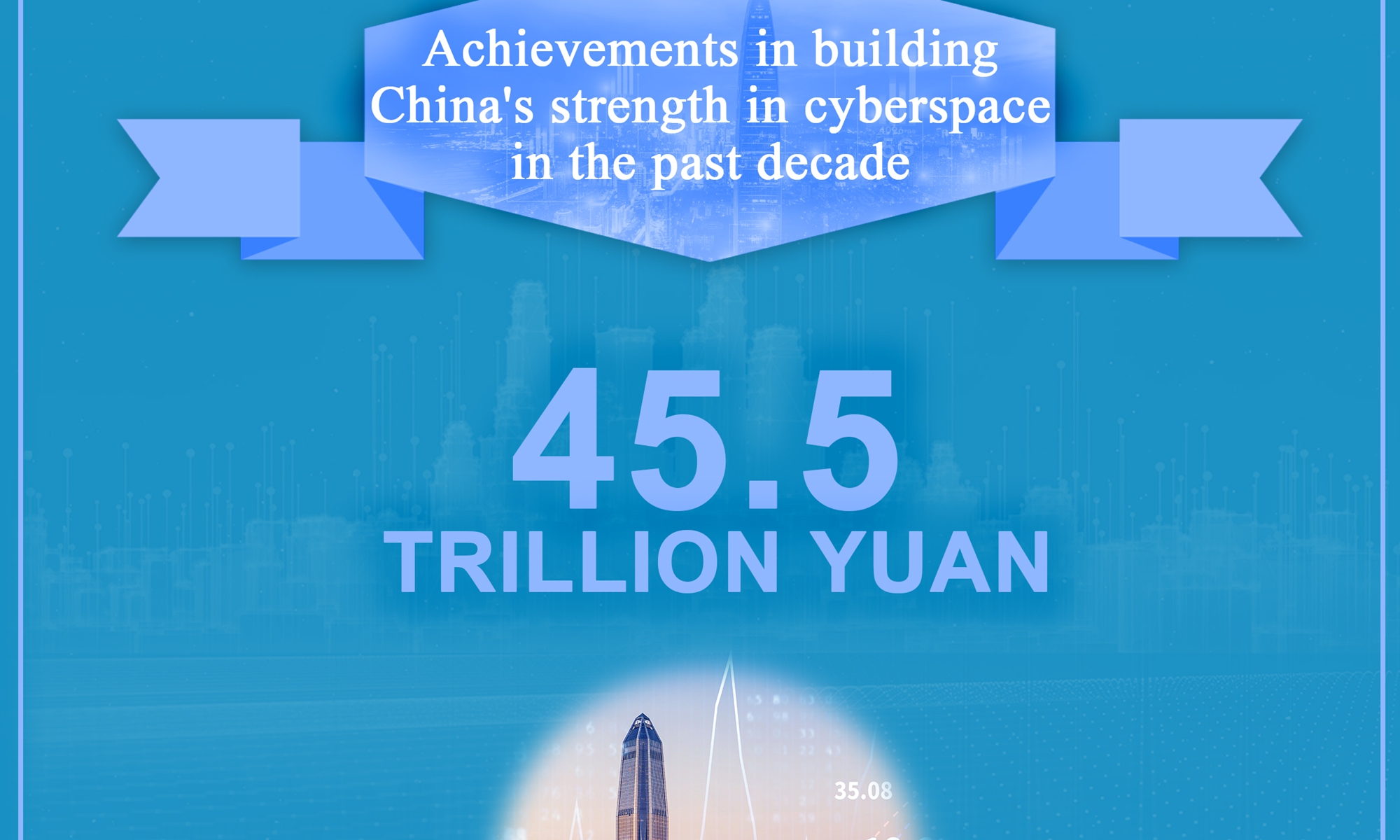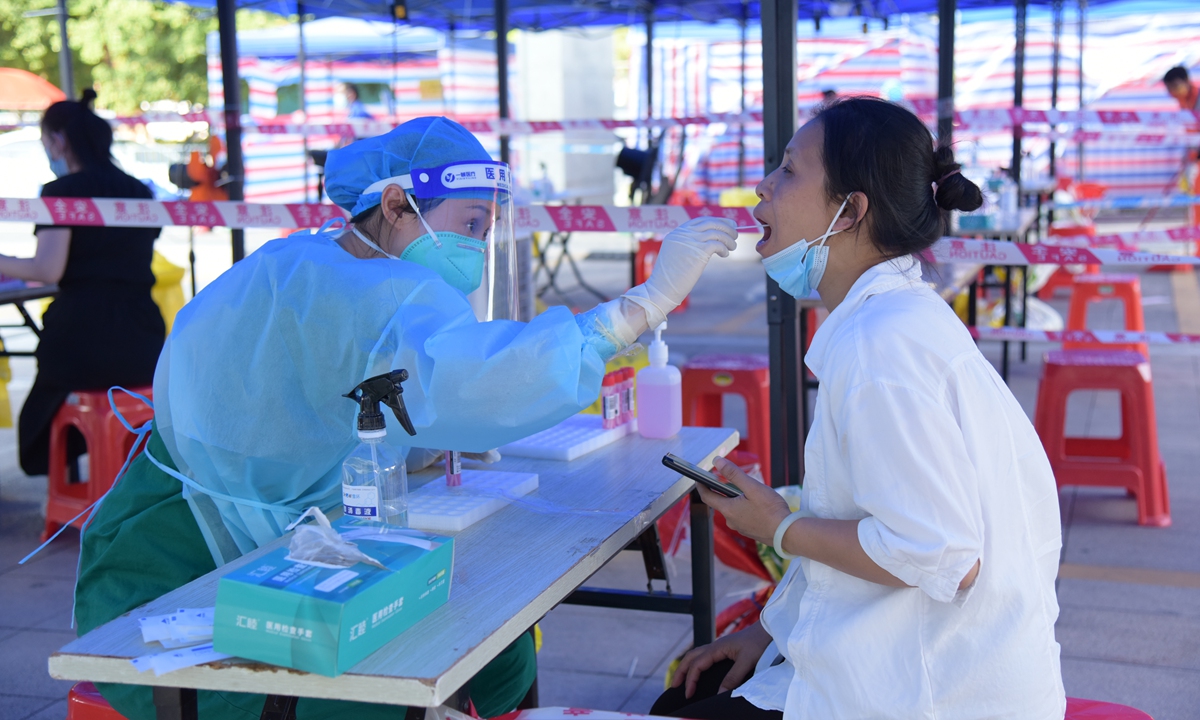cyberspace Photo:VCG
China releases white paper on jointly building a cyberspace community
China's State Council Information Office issued a white paper titled "Jointly Build a Community with a Shared Future in Cyberspace," which is fundamentally different from the US' earlier release "Declaration for the Future of the Internet," as China advocates that cyberspace is the common home of humankind instead of creating division and confrontation by ideology. The Office released the white paper during a news conference on Monday morning in Beijing, which introduces the achievements of China's Internet development and governance practices over the past decade and puts forward the Chinese proposition of building a community with a shared future in cyberspace. As problems of unbalanced development, unsound rules and unreasonable order in the cyberspace are becoming increasingly prominent and cyber hegemony poses a new threat to world peace and development, effective solutions and joint efforts are needed to address the problems, officials said. China's white paper is fundamentally different from the US and its partners' joint release "Declaration for the Future of the Internet," said Qi Xiaoxia, director general of the Bureau of International Cooperation of the Cyberspace Administration during Monday's news conference. The "Declaration for the Future of the Internet" attempts to impose its own standards on others, draw ideological lines in the cyberspace, draw "small circles," create division and confrontation and violate international rules, Qi said. These actions have seriously undermined the unity of the internet family and affected the stable development of the global internet. In the US' vision, it has abandoned multilateral platforms such as the UN and is keen to form various exclusive cliques instead, in an attempt to draw ideological lines and undermine the global rules of Internet governance by touting its unilaterally-defined principles, trying to create an exclusive bloc in the name of democracy, Chinese Foreign Ministry spokesperson Zhao Lijian said in May. Instead, China advocates openness, cooperation, tolerance and mutual understanding, he said. "We believe that cyberspace is the common home of humankind, and that the future of cyberspace should be in the hands of all countries in the world, not by a single country or a few countries." China advocates that the UN play the role of the main channel in the international governance of cyberspace, and that the international community adhere to the principles of common consultation, construction and sharing, strengthen cooperation and jointly develop international rules for cyberspace, Qi said. China is willing to deepen cooperation with countries around the world, promote the reform and construction of the global internet governance system, she said. However, contrary to China's vision of mutual benefit, there are many restrictions on the development of Chinese companies in some countries while they are actively exploring the international market. "Chinese enterprises have carried out international research and development cooperation, and provided a large number of safe, reliable, high-quality and inexpensive products and services to the world, which are widely welcomed," Qi said. "Chinese enterprises have actively fulfilled their corporate social responsibility and provided a large number of employment opportunities for the countries and regions where they operate." Qi pointed out that the reason is clear for the development restrictions of some Chinese enterprises including Huawei in overseas market. "On the pretext of 'national security,' certain countries have abused export control measures to maliciously block and suppress Chinese enterprises, which undermines the legitimate rights and interests of Chinese enterprises and causes serious disruptions to the stability of the global industrial supply chain," she said. The Chinese government opposes politicization of technical issues and abuse of state power to suppress and curb other countries' enterprises by any means in violation of market economy principles and international economic and trade rules, said the white paper. Besides, Qi denied that China's cybersecurity build-up would affect foreign companies' operations in China. "Such worries are totally unnecessary," Qi said, responding to a question raised by a foreign reporter. "What is foreseeable is that China's open door will only get wider."Data show that the number of foreign-funded enterprises in China has exceeded 1 million, which shows that foreign enterprises are very confident in China's business environment. The Chinese government has always been committed to creating a market-oriented, rule-of-law business environment, encouraging more enterprises to operate and develop in accordance with the law, and treating both Chinese and foreign enterprises equally, Qi said.
Related posts:














%20Dashboard%20With%20Vaccination%20Data.png)

%20Dashboard%20With%20Vaccination%20Data.png)

%20Dashboard%20With%20Vaccination%20Data.png)

%20Dashboard%20With%20Vaccination%20Data.png)

%20Dashboard%20With%20Vaccination%20Data.png)


